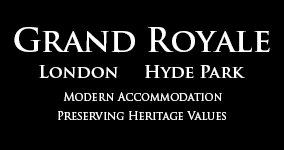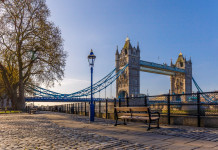Home to some of the biggest and most fascinating of the world’s museums in, London’s historical collections in such venues comprise everything from ancient artefacts to natural curiosities, British paraphernalia to pieces drawn from around the world (so much so then, there’s every kind of museum, the big beasts, ones dedicated to the Royal family and even fashion museums in London). And, maybe best of all, many of them are entirely free to enter. So, if you love the idea of spending a three-day visit to the UK capital (while staying at one of the discount hotels Bayswater?) by strolling through some of its finest museums, here’s how to plan your itinerary…
Day 1
10am: Victoria & Albert Museum – with the world’s largest decorative arts collection of, the V&A’s home to more than 4.5million pieces (everything from musical instruments to statues) all of them relating to either fashion or history (or both); there’s even a recreated ‘Jacobean room’.

1pm: Natural History Museum – full of fascinating pieces collected from all over the globe (extinct and extant animals and a full-sized T-Rex dinosaur model that moves while you stand in the shadow of the skeleton, as well as a cutting of one of the largest trees on Earth) and featuring the chance to stroll through the solar system yes, really!

3:30pm: Science Museum – a firm family favourite, this one offers hands-on exhibitions (lots of ’em) for an awesome interactive experience, including the oldest steam locomotive you’ll find anywhere, the original jet engine and an IMAX cinema showcasing terrific science and nature documentaries.
Day 2
10am: British Museum – this extraordinarily comprehensive museum is home to artefacts drawn from literally every corner of the globe; its most popular pieces being the Egyptian mummies, the Elgin Marbles (reliefs from Athens’ Parthenon) and the Rosetta Stone (the translating tool that helped us decipher Egyptian hieroglyphics).

1pm: Museum of London – enjoy a stroll, chronologically, through the history of London Town itself, all the way from prehistory right up to now and, even, a glimpse into the future; the journey includes Tudor trails, Georgian fashion, a recreated Victorian town centre and a tumultuous and tragic Blitz experience.
3pm: London Guildhall and Roman Amphitheatre – sure, merely this attraction’s exterior is impressive, but it’s also one of the very best places to experience Roman London; in addition to the extraordinary remains of a Roman amphitheatre, there are artworks on display celebrating the city.
Day 3
10am: The National Gallery – The UK’s leading art gallery; it comprises literally thousands works of fine art, some courtesy of the most famous artists in history including Monet, van Gogh, Manet, Holbein and Turner

1pm: The National Portrait Gallery – the too often overlooked sister venue to the National Gallery, this venue gloriously takes visitors on a chronological journey through British history, from the Tudor age to the present, with its cacophony of depictions of its most famous (and infamous) figures, among them monarchs, politicians, military heroes (and villains), scientists, literary and artistic greats and modern-day celebrities.

3pm: Queen’s Gallery, Buckingham Palace – attached to Buck House, this attraction hosts an ever-changing exhibition of works from the Royal Collection, the likes of anatomical works by Leonardo da Vinci, portraits of the Tudors and Stuarts, artworks by 16th Century court painter Hans Holbein (as well as many an unexpected highlight; for instance, a pair of socks owned by King William III).
4pm: Queen’s Mews, Buckingham Palace – finally, round off your historical and cultural whistle-stop tour of the capital with a short stay (definitely shorter than your stay, perhaps, at a fittingly named Royal hotel London) at this venue that’s also home to items from the Royal Collection, specifically historical coaches and carriages, including some still used today; such as the one used to ferry William and Kate back to Buckingham Palace from Westminster Abbey on their wedding day!








